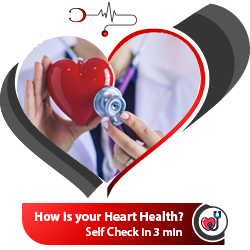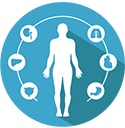Keto Diet - Everything You Should Know About
What is Keto Diet?
A keto diet is well known diet used for quick and considerable weight loss. Keto diet is also referred to ketogenic diet, LCHF (low carb high fat), low carb diet. The ketogenic diet is done to get calories from proteins and fats than the carbohydrates.

How does Keto Diet Work?
When lesser carbs (lower than 50 grams) are consumed in a day; our body eventually runs out of fuel (blood sugar) it can quickly utilize; which usually takes 3 to 4 days. Then eventually the body starts to break down protein and fat for energy, resulting in weight loss. This process is called ketosis.
Keto Diet Benefits
In the keto diet plan, a conscious effort is made to cut back most on the carbs which are easy to digest, for example: simple sugars, white bread, soda, bakery items, etc. Following are some of the Keto Diet Benefits:
-
Increases the 'Good' Cholesterol Levels:
HDL (High Density Lipoprotein) levels are increased with a low carb diet. It is ironic enough to say that a low-carb (high-fat ketogenic) diet is an excellent way to increase the HDL levels which eventually help in the prevention of heart diseases. -
Controls the 'Bad' Cholesterol:
High LDL (Low Density Lipoprotein) levels are associated with the increased risk of heart diseases. Eating low-carb both reduces the LDL level in the blood which directly correlates to improvement of the heart health. -
Lowers the Triglycerides:
Triglycerides are nothing but fat molecules! It is known fact that higher triglycerides levels are associated with a high risk of heart diseases. A low-carb diet is an excellent method to reduce the triglyceride levels. -
Controls Blood Pressure:
In case you are planning to control your blood pressure long-term diet low-carb is an ideal choice. -
Insulin Management:
Low-carb is also good for controlling the insulin levels and lowering the spikes of blood sugar levels and subsequent crashing of the sugar levels. Hence, the ketogenic diet serves as a naturally effective treatment of type 2 diabetes. -
Lose the Surplus Water Weight:
We usually carry an extra burden of weight in terms of stored water, especially if we are dehydrated. If you are planning for a fast weight loss you can shed these extra pounds in the form of water weight quickly with this diet. -
Prevent the Metabolic Syndrome:
Metabolic syndrome is a set of risk factors, which significantly puts you at the risk of conditions like heart disease, stroke, diabetes, etc. Since a low-carb diet can reduce these risk factors that cause metabolic syndrome, it is one of the most efficient ways to prevent cardiovascular disease and the associated complications. -
Controls appetite:
When you consume fats in the low-carb ketogenic diet, the body makes adjustments to predominantly burn out the fat for the need of energy (this process is called ketosis). Eating foods rich in fat curbs the need to snack frequently or overeat. -
Increases mental being:
There are study reports which state that with a low carb keto diet results in boosting your mood. This helps in the mental health and well-being eventually leading to a good physical health. -
Rapid Weight Loss:
You can experience a rapid weight loss by a keto diet because:- A low-carb diet aids in removing the excess water weight
- Lowers the insulin levels, which means the kidneys start removing the excess sodium from the body. Most importantly, you can burn off the dreadful belly fat too.
Disadvantages of Ketogenic Diet
After looking at the benefits, we might wonder "Is keto diet safe?"
Let's have a look at some of the drawbacks of a Ketogenic Diet:
-
Adaptation/Adherence Issues:
In the initial phase of the keto diet, it becomes really difficult to adhere to it. Since the body has been accustomed to acquire the energy from the carbohydrates in the diet and a sudden shift to a low-carb diet may cause a difficulty in adaptation/adherence to the diet itself. The adaptation might usually be from 1 - 2 weeks. -
Adverse effects on health:
a high-fat diet regimen for sustaining ketosis might have long-term, detrimental effect on the health. For example:- Foods which are high-fat and low protein/carbohydrates, like: egg yolks, butter, coconut, are a rich source of saturated fats; which can put you at an increased risk of heart ailments.
- High-fat diets are known to cause injury to the brain cells that help in controlling body weight.
Keto Diet Plan
Before thinking of getting on a ketogenic diet, one should keep in mind about what-to-eat and what-to-not-eat. Following are some options which you can incorporate in your Keto diet food list:
- Eggs (Whole eggs)
- Cheese (Full-fat)/ Cream cheese
- Sour cream
- Salted butter
- Olive oil
- Grilled Chicken
- Chicken broth
- Fatty fish like: mackerel, salmon, anchovies, sardines
- Bacon
- Pork rinds
- Beef options like: ribeye, filet mignon
- Nuts like: almonds, macadamia nuts, cashews, pumpkin seeds
- Avocado
- Greens/Vegetables like: spinach, lettuce, thyme and other green leafy veggies, asparagus, broccoli, bell peppers, cabbage, cauliflower
- Mushrooms
Also Read: DASH Diet- Control Blood Pressure Naturally






